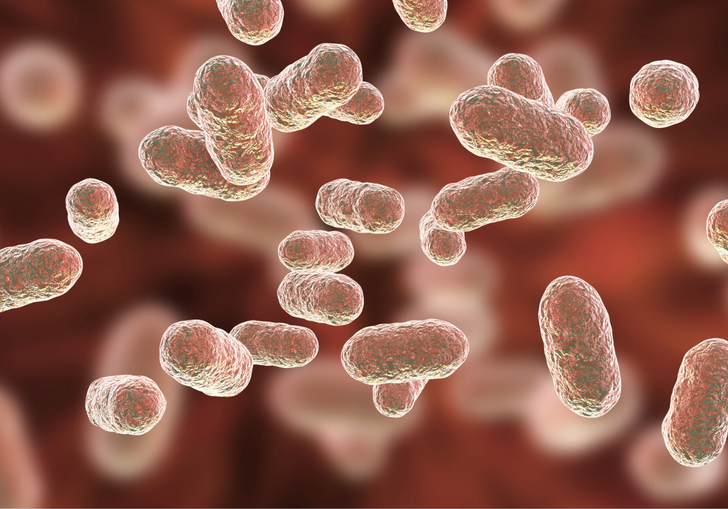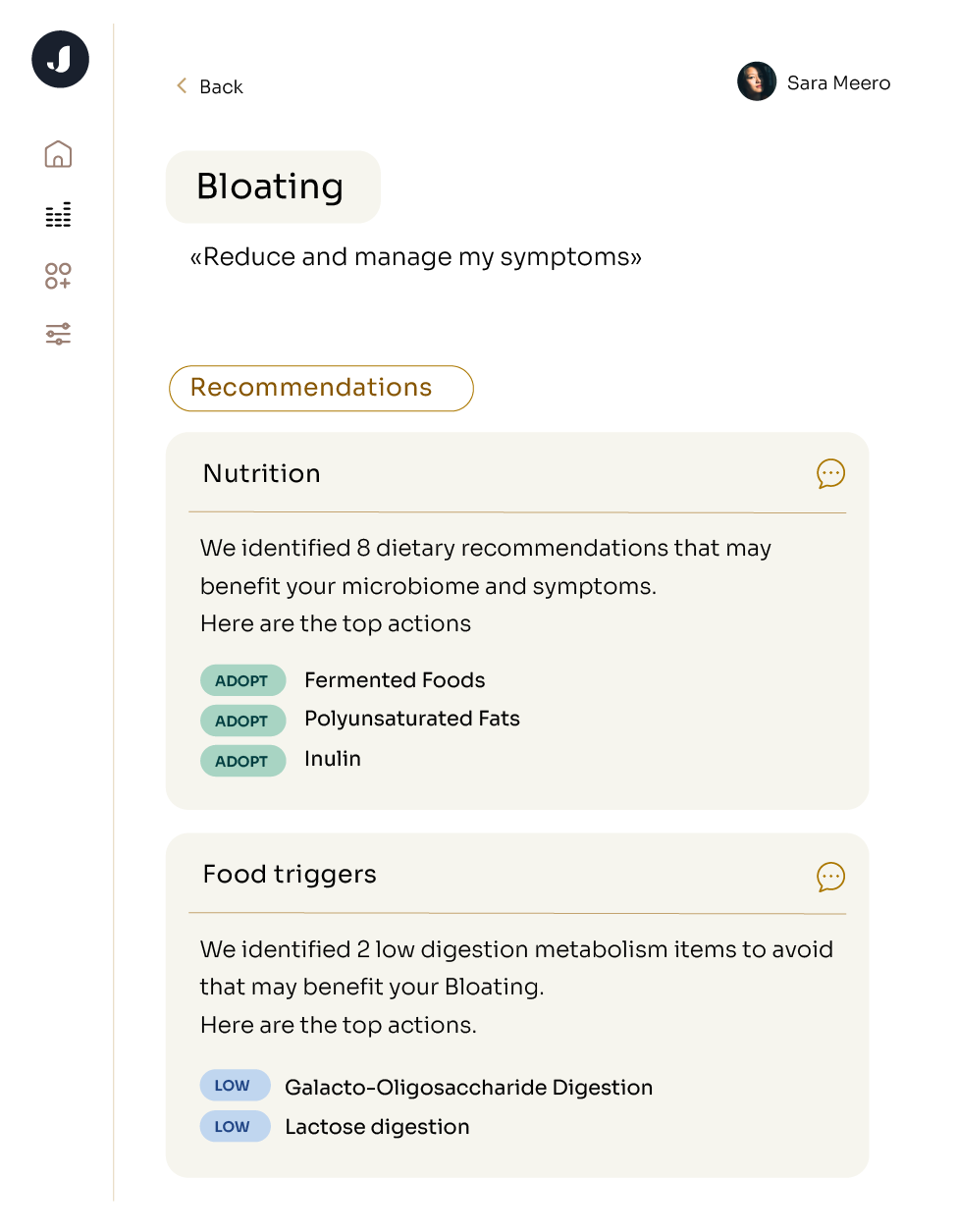In the quest for effective weight management, researchers are increasingly turning their attention to the gut microbiome – a vast community of microorganisms residing in our digestive tracts. While the link between gut health and weight regulation is a subject of growing interest, it's crucial to acknowledge the complexity of this relationship and the preliminary research in adult humans. To learn more about this complex and dynamic ecosystem residing in our digestive tract, see our post on The Amazing Gut Microbiome.
The Weight Management Puzzle
Navigating the landscape of weight regulation involves considering various elements, notably diet, physical activity, and genetics. Our dietary choices and the nutritional value they bring, alongside our level of physical activity, significantly influence whether our bodies store or utilize energy. Genetic factors also contribute to the diverse ways individuals may grapple with weight-related challenges. This dynamic interplay of diet, activity, and genetics lays the groundwork for the complex puzzle of weight management.
Adding a new layer to this narrative is the gut microbiome. Beyond its digestive role, emerging research suggests that the composition of this array of microorganisms may impact metabolic processes, influencing how our bodies extract and store energy from the foods we consume. The gut microbiome comprises trillions of microorganisms, including bacteria, viruses, fungi, and other single-celled organisms. Studies have shown that individuals with a more diverse gut microbiota tend to have a healthier weight profile, although the exact mechanisms behind this correlation are still being investigated.
Furthermore, the gut microbiota is involved in various metabolic processes, including the breakdown of dietary components that the human body cannot digest independently. Microorganisms such as Firmicutes or Bacteroidetes assist in extracting energy and nutrients from undigested food, which can impact how the body stores or utilizes this energy. Differences in the gut microbiome might affect metabolic pathways, potentially contributing to weight-related issues.
Certain gut bacteria including strains of Lactobacillus or Bacteroides can also produce molecules that influence the secretion of hormones that affect appetite and food cravings. For instance, they might signal the brain to crave certain foods or affect hormones related to satiety. This interaction between gut microbes and the host’s physiology could indirectly impact weight management by influencing eating behaviors.
Insights from Animal Studies
Several animal studies have provided intriguing insights into the potential connection between gut microbiota and weight management. Researchers have observed that alterations in the composition of the gut microbiome can influence body weight in animals. For instance, experiments involving the transplantation of microbiota from lean animals to those predisposed to obesity have demonstrated a subsequent reduction in weight gain. Conversely, transferring microbiota from obese animals to lean counterparts resulted in increased weight gain, pointing to the role of the gut microbiome in influencing metabolic processes.
Additionally, animal studies have highlighted that specific microbial communities might enhance the extraction of calories from food or influence the storage of energy in the body, ultimately placating weight regulation. It has been observed that mice that are genetically obese have a higher proportion of intestinal Firmicutes and fewer Bacteroidetes. Animal research has also shed light on the gut-brain axis, a bidirectional communication system between the gut and the brain. The gut microbiota can produce signaling molecules that affect neural pathways, potentially influencing appetite, food intake, and energy balance.
However, caution is essential when extrapolating these findings to humans. While animal studies provide valuable preliminary information, the complexity of human physiology and the diverse factors influencing weight regulation necessitate careful interpretation. Human diets, lifestyles, and genetic makeup differ significantly from those of animals studied in controlled laboratory settings. Additionally, the translation of results from animals to humans is a complex process, and not all findings may directly apply. Therefore, while animal studies offer valuable insights, it is crucial to approach these findings with caution and recognize the need for further research in human populations to establish a clearer understanding of the intricate relationship between gut microbiota and weight management.
Human Studies
Human studies exploring the link between the gut microbiome and weight have provided a wealth of information, yet the picture is far from conclusive.
A high gut microbiome diversity in a matched twin cohort study was found to be correlated with lower long-term weight gain. Furthermore, research has previously suggested connections between an increased abundance of Bacteroidetes in fecal samples and weight loss, as well as associations between increased Firmicutes/Bacteroidetes ratio and the development of obesity. Nevertheless, conflicting evidence exists regarding the presence of Bacteroidetes species in the gut microbiota of obese individuals when compared to their non-obese counterparts, suggesting no correlation or even a positive link with obesity.
For example, Schwiertz et al. found that obese individuals exhibited a significantly higher concentration of short-chain fatty acids (SCFA) in their fecal samples compared to lean counterparts. While SCFA are generally considered beneficial for gut health, elevated levels in feces could result from increased microbial production, shifts in microbial cross-feeding patterns, low mucosal absorption or variations in transit rates. Another study confirmed that the ratio of Firmicutes/Bacteroidetes is not important but rather the production of SCFA. This intriguing discovery emphasizes the complexity of the relationship between SCFA, gut microbiota, and overall health, calling for further research to comprehensively understand these dynamics in both lean and obese populations.
One significant challenge in conducting rigorous human trials in this field lies in the multitude of factors influencing the gut microbiome, which may explain such discrepancies. Diet, lifestyle, genetics, and environmental factors contribute to the complexity of the microbial landscape within individuals. Moreover, variations in study designs, small sample sizes, and sequencing methods across different investigations add another layer of complexity and makes it challenging to compare the results across different studies. Additionally, the dynamic nature of the gut microbiome presents a temporal challenge, as its composition can change in response to various stimuli, making it difficult to capture a comprehensive snapshot. Furthermore, it's challenging to discern whether changes in the gut microbiome are a cause or a consequence of weight changes.
Clearly, there is a need for more high quality, randomized controlled trials in this space. One such large international study called PREVIEW was a clinical trial focused on diabetes prevention through lifestyle changes. The study found that the makeup of the gut bacteria significantly and consistently changed after participants followed a low-energy diet (LED). This change was associated with increased diversity of the gut microbiota. Specific bacterial groups linked to metabolic improvements, such as Akkermansia and Christensenellaceae R-7, increased significantly, while others like Pseudobutyrivibrio, Blautia, and Bifidobacterium spp. decreased notably. Moreover, these alterations in the gut microbiota were closely linked to the amount of weight lost during the intervention. The study found that about one quarter of the variation in total body fat change by the end of the study could be explained by the features of the participants' gut microbiota at the start of the study.
Probiotics and Weight: A Controversial Terrain
The use of probiotics, live microorganisms with potential health benefits, has gained attention as a potential tool for weight management. Proponents suggest that adding certain beneficial organisms may influence the gut microbiome in ways that support weight control. However, the evidence supporting the effectiveness of probiotics in weight-related outcomes is still a subject of ongoing research, and findings are not entirely conclusive. Furthermore, there is currently a lack of robust controlled clinical trials specifically evaluating the effectiveness of probiotics as treatments on their own for obesity.
As each person possesses a distinct gut microbiome, the impact of various organisms in commercial probiotics can vary significantly. Moreover, the transient nature of probiotics in the gut, as well as the need for continuous supplementation, raises questions about the sustainability of any observed effects. Strains of probiotic bacteria have been purportedly linked to improvements in metabolic parameters, such as insulin sensitivity and lipid profiles. For example, in a case-control study, certain species of Bifidobacterium (like B. animalis) and Lactobacillus (such as L. paracasei) were associated with individuals maintaining a normal weight, whereas other species in the same genera were associated with obesity. However, while some studies report such positive effects, others show no significant impact on body weight or related metabolic factors. A meta-analysis of randomized-controlled trials indicated that the consumption of probiotics led to a small enhancement of body weight loss (pooled 1.2%) among overweight subjects. However, variability in study designs, differences in the strains and dosages of probiotics used, and the individualized nature of responses to probiotic interventions contribute to the complexity of interpreting these findings. It also remains to be seen whether initial weight-loss effects of probiotics can translate into long-term effects.






